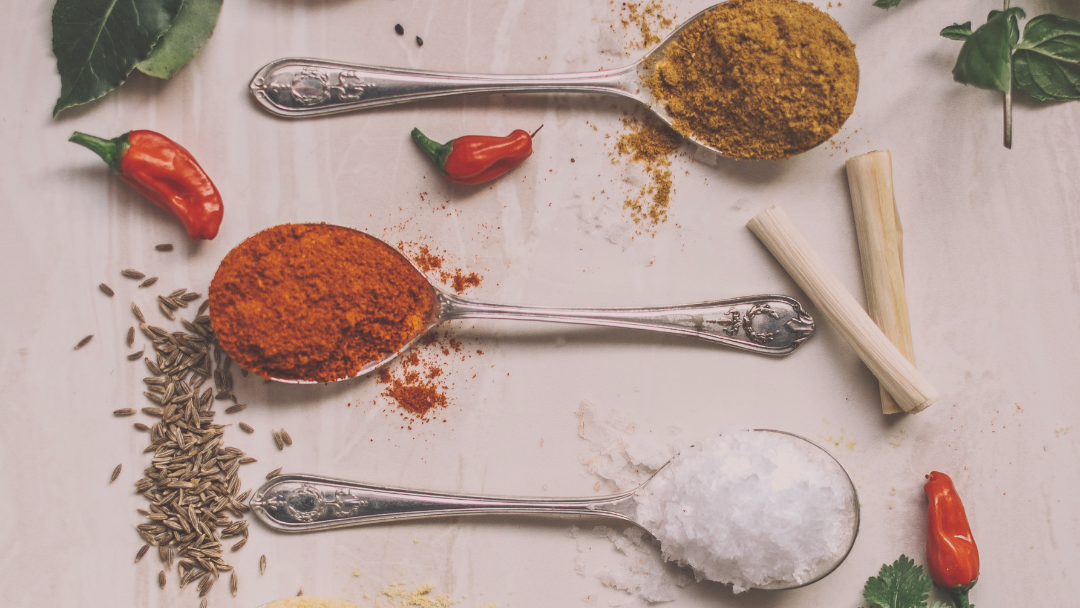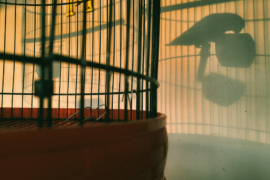WE CALLED OURSELVES THE EATERS BECAUSE WE ATE WHAT WE WERE SERVED. Every final Friday of the month, we got together as a group to devour as much as we could. This usually meant all-you-can-eat buffets, the cheap kind where kids eat free, but then Silvina read this book from her home country about a club of men like us, who love to eat, who get murdered by a chef one by one. So we decided to up our game. After all, if these fictional men could indulge to their deaths, why couldn’t we real women do the same? We stopped going to buffets and started going to regular restaurants. Chain places like Applebees gave way to local joints like the Pasta House, which eventually became higher end spots with fifty dollar steaks and craft cocktails and ahi tuna appetizers. We refined our palates as a group until we could taste the difference between regular and Meyer lemons based on the way the acid popped against the bitterness of the broccoli on our plates.
We spent more and more on meals, and I was struggling to keep up with the extravagant price tags. So it was me who suggested that now that we knew how to eat, we should learn how to cook. At first the others hated the idea; cooking for a woman is so repressive, they said. So unfeminist. But then I reminded them that most of the famous chefs were men, so we just had to treat ourselves with that level of respect. Eventually, they all came around and we started calling each other chefs. Every conversation, whenever we agreed, there was always a chorus of “Yes, Chef!”
For our inaugural home meal, I chose tournedos à la bordelaise because it seemed easy enough to do while still leaving a high impact impression. I practiced the dish for a week, just in case, and by the time it was the day of the dinner, I could feel my blood pressure rising from the repeated meals of increasingly luxurious beef. The others ate with gusto, hollering “Yes, Chef!” when each new bite hit their tongues with perfection. Silvina brought us each an English copy of the book that she loved with the murdering chef to celebrate the next evolution of The Eaters.
From there, the dishes only ever improved. Each one of us set out to outdo the last, and simple yet elegant French cookery spread into other cuisines. It became a competition amongst us, to see who could achieve the highest level of skill. We attended classes together, learned how to handle our knives for anything from a simple chop to a chiffonade. We even learned how to butcher a whole cow. By the time a year had gone by, we all considered ourselves top-notch. After a second year, our friends and family outside of The Eaters considered us top-notch, too. At the end of the third, each of us had become known in the community as an excellent cook.
Excellent cooks, not chefs. I believe we could all see the problem.
Some of us had husbands, but none of us had wives. We would have all preferred the latter, but it was what it was, and we all tolerated the spouses with the stringent rule that they never make an appearance at our Friday dinners. They could eat our leftovers the next day, but they could never join us. Our spouses were boring, boorish at worst, and lacked the finesse that we required of a truly suitable partner. Sometimes the married ones would spend nights with each other instead, sampling the delicate sin of infidelity the way we would taste the truffled chocolates Silvina prepared as her signature dessert. I hated the husbands more than the others, enough so to say that I hated them instead of couching my feelings behind euphemisms to soften the impact of my words on their darling wives.
Silvina’s husband was a brute, and we all wanted to be rid of him. Or at least, I wanted to be rid of him. Silvina was my favorite, and to see her suffer being yoked to such an unbearable person was more than I could handle. In the low lights after our meals together, I would beg Silvina to leave him, to abandon the facade of a life that she hid herself behind in order to survive in this hell of a world. She would demure, claim to be happy, claim to be at the very least content with her husband. Until one night, she wasn’t.
Silvina arrived at our meeting of The Eaters with a swollen black eye. Her husband had, by her accord, finally gone too far by marring her perfectly poised face, the face which had maintained the illusion of marital bliss to the public for so many years. She confessed that he’d discovered her love for other women. And my hatred of him burned so ardently that I knew what we had to do. I retrieved my copy of Silvina’s book and began studying. We were the gluttons of the club, but we were also the chef preparing the meals so perfect that one would literally die for a taste, and willingly. If we were the chefs, then we were also the poison.
It started as a joke: “We should try cooking with mushrooms. Not creminis, no. You know what I mean.” Then a round of laughter as we all imagined ourselves hallucinating together from the savory duxelle of a beef wellington. But the laughter turned to serious contemplation when we realized that this could be our next evolution. We had already evolved from the simple slop of cheap buffets to the elegant pairing of pheasant and blackberry sauce, and our palates hungered for something new, something perhaps a little dangerous.
I don’t remember who did it first, but suddenly our meals all incorporated at least one ingredient known to cause odd effects to the human body. Many of these effects were pleasant, some were orgiastic, a few were cosmically realigning as our group tripped together through a multiverse of psychic possibilities. Some of them, though, were just as unpleasant, just as unsexual, just as horrifyingly eldritch as the positives. Bit by bit, we conditioned ourselves against the biological discomfort of our new ingredients until we felt ourselves immune to most common toxins. We popped poison berries with the confidence of queens, crushed their tart skin between our teeth and stained our tongues blood red.
We soon realized that we had to be careful of the leftovers. None of the spouses had built up their tolerances; that we had remained our secret, sworn over a shared peyote tea that sent us to the heavens together and back to earth with a renewed dedication to the craft. One husband tried to take some of our meal only to need so much Benadryl he slept for two days. This worried us, and his wife took care to make him only the safest of chicken stocks to drink. We convinced him he must have been allergic to something, perhaps the rare greens that we’d managed to procure for the event. That husband never ate after us again.
Silvina’s husband had never tried any of our cooking except for hers, and he refused to dignify The Eaters as anything other than a group of bored housewives passing time, the way needlepoint clubs and Bible studies kept women occupied while their men were out doing the real work of the world. I loathed him more each day and wished to stuff his face with an ivy salad–the strawberry vinaigrette would hide the poison in the leaves. Silvina grew distant as he grew more controlling, until all of us were secretly plotting his demise. I was the first one to break, to speak what had until then remained quiet, “We could get rid of him for her if we just invite him to dinner. We could get rid of all of them.” All of them was a stretch, some of them liked their husbands well enough, but for Silvina’s husband the consensus was immediate. Yes, Chef! Yes, we could be rid of him.
It became my responsibility to convince Silvina, because we didn’t want to act without her permission. She startled me by taking ages to agree to her husband’s removal, but in the end, her fear of him and her fear of the law were overpowered by her hatred of him. I helped stoke this hatred until it burned white hot in her heart, almost as white hot as my love for her. I desired Silvina more than any dessert the world could offer me. I longed to explore her flesh, to taste the sumptuous parts of her that filled me with lust. We would be rid of the husband soon, too soon yet not soon enough. I felt insane in my passion for Silvina, insane enough to strike the vile buffoon dragging her down until he was nothing but ground beef.
We settled our menu on a weekend getaway to Manhattan. Despite all of our best efforts, the only way for us to eat fugu would be to eat it at a restaurant prepared by a trained chef. Silvina was the most excited to try the forbidden fish–she had dreamt of it since her first time reading the book with the murderous chef. We sat down to eat and were served course after course of cold and beautiful sushi, sashimi cut into perfect slides, rice formed into perfect nigiri lobes, the perfect hint of wasabi gluing them together. The chef had trained a famous television chef, and he was one of the few men in the country certified to serve us fugu. The meal was so elegant, so elevated, that we did not miss our magic concoctions made from questionably sourced ingredients. We shared an ecstasy at that table, an ecstasy that couldn’t be matched by any drugs or lovemaking. The ecstasy of food, pure food in all of its glory.
Convincing Silvina’s husband to come to dinner with us was as simple as having Silvina host our next meal. Out of all of us, she had only ever hosted once, and that time our dinner had been disrupted by her husband. He’d barged in on us, drunk, pushed himself between me and Silvina and begun eating her food off of her plate. She tried to remove him, but she was too gentle with him, and the rest of us waited until he’d had his fill and left before we resumed eating. It hurt us to wait, to watch our meals grow cold on our plates while he fed like a pig at a trough. Once it was over, we wordlessly agreed that Silvina would not host if her husband would not respect us.
It was that same disrespect that would make her husband insist on eating with us if Silvina hosted. He knew that the other husbands were not invited when the other wives took their turns to host, but when Silvina told him that she’d been asked to host, he demanded a seat at the table. Silvina put up a show, complaining that of course we couldn’t. It was enough of a fight that he raised his hand in the air before she conceded, more than enough to make him think it was his idea to be involved in our event when he was really the guest of honor.
Silvina prepared a seven course menu, complete with two distinct wine pairings and ruddy brown negronis as the aperitif. “The theme of the meal,” she said as she served plates with chicken-stuffed coxinhas, “is Estômago. It means stomach.” She and I knew that this was another Brazilian story with a murderous chef, a film we’d watched together the night before while I helped her prepare for tonight’s feast. The coxinhas, tonight’s hors d’oeuvre, were crispy on the outside, warm and savory on the inside, and they popped with wild rosemary. Silvina’s husband raved about how good they were, just like he’d have gotten as a child at a cafe in São Paulo.
For the soup course, Silvina served up a steaming dish she called a caldo de legumes, a type of vegetable soup with a smooth base. I spooned a small bite into my mouth; it was soft on the tongue, hot and earthy from the root vegetables blended together into a thin puree. Silvina’s husband once again praised her for her Brazilian cooking. This was followed by veal carpaccio, which we ate with gusto. Silvina had opted for slicing the meat instead of pounding it flat, and she had managed to shave it so whisper thin that it nearly dissolved on the tongue. The meat was paired with a peppery arugula and garlic-infused olive oil, and the combination was elegant and bright.This was the first time the husband criticized; he could appreciate a rare steak, but raw? He wouldn’t touch it. Instead of wasting his serving, we divided it amongst ourselves, each of us snapping up an extra shard of the pink meat. The husband’s face bore a grimace that delighted me.
“In place of a salad,” Silvina said as she brought out the next course, “I wanted to showcase another Brazilian classic. This is feijoada with farofa.” This course had been the longest to prepare; Silvina and I had set the beans to soaking the night before, and I knew that she’d opted for the convenience of ten hours in the slow cooker to keep her stove clear for the other dishes. Each bite was rich and savory, and with the pleasant texture of the farofa mixed in, it felt comforting. Silvina’s husband was back on board. “How come,” he complained, “you don’t make me feijoada more often, eh?” Silvina smiled and shushed him, then asked for my help with the next course.
Together, we carried a wide silver platter laden with a full roast suckling pig to the table. Silvina carved the meat in front of us, passing portions to each guest. We positioned the platter so the pig’s head, stuffed with an apple, faced Silvina’s husband. “That’s kind of creepy, eh?” he said, gesturing toward the empty eye sockets with his knife. Silvina asked him if he wanted the head. “No no no,” he said. “Give me something good.” She gave him a cut from the belly and split the jowls with me. The meat was supple, tender, as succulent as the suckling name implies, with a skin so crackling crisp it could’ve been packaged and sold as gourmet chicharrones. By the time I’d finished my portion, I felt so contentedly full that I almost forgot what we were here for.
The suckling pig may have been the main course, but we were all waiting for Silvina to serve the dessert. This would be it, this would be the pièce de résistance with the poison we’d worked so hard to procure. Not even I knew what Silvina had prepared. She emerged from the kitchen with a tray filled with skewers I did not recognize. “Guava paste and cheese, we call this Romeu e Julieta, a pairing so perfect you could die for it.” The guava was sweet, and a little bit tart on the tongue. The cheese was soft and salty, a perfect balance for the guava. I ate my whole portion and watched Silvina eat hers. She stood and swept her way back into the kitchen.
“This is too much food,” Silvina’s husband said after he’d eaten half of his serving. “I don’t know how you ladies eat like this without getting fat. Here,” he said, pushing the plate in front of me. “Eat this for me.”
“Oh, I couldn’t possibly,” I said. “I’ve eaten so much.”
He passed his plate to her. “That’s a lie,” he said. “I bet you could eat the whole meal again. Just take it.”
“Well,” I said as I popped the rest of his Romeu e Julieta in my mouth, “you know us, we eat what we’re served.”
By the time Silvina returned several minutes later, I could feel my throat closing. The husband was long gone, but I had tolerances. If I tried, I could outlast. Silvina said, “Now, who would like a mignardise?” and my eyes closed on the sharp glint of the butcher knife she held in place of her signature truffles.
MAGGIE FELISBERTO is a queer nail polish enthusiast with a PhD in Portuguese literature and an MFA in creative writing. She lives in Massachusetts with her sister and nine pets.
Like what you’re reading?
Get new stories, sports musings, or book reviews sent to your inbox. Drop your email below to start >>>
NEW book release
Ghosts Caught on Film by Barrett Bowlin. Order the book of which Dan Chaon says “is a thrilling first collection that marks a beginning for a major talent.”
GET THE BOOK



